Call to action: Why LGBTQ inclusion must be amplified in Australian sport, during and post-COVID19.
By Beau Newell
Australia is often the home ground for varying levels of disasters, and 2019/2020 was no exception.
To begin a new decade, we were hit with a constant onslaught of events, including extreme drought which led to bushfires (that produced smoke which was seen across the globe), destroyed 8,000+ homes and buildings, and saw more than one billion animals killed. This was shortly followed by floods that came with the heaviest rainfall in 30+ years, devastating communities for the second time in two months. And if natural disasters weren’t enough, a global health emergency (COVID-19 pandemic) was thrown in for good measure just to keep us on our toes.
What’s more is that the culmination of these events has caused mass devastation to sporting codes across Australia. From game cancellations, to thousands of staff losing their jobs (whether temporarily or indefinitely). The heartache has been felt at all levels of sport, from grass roots all the way to international events.
So, why on earth would a sporting organisation look to invest time and money on diversity and inclusion (D&I) work?
OK, lets break it down for you…
What we know from those within sport:
- In early 2020, over 600 individuals from across various Australian sporting codes participated in the Pride in Sport Index (PSI) survey. Of those surveyed, 57.5% of people believed that their sport should put more effort into the LGBTQ+ aspect of diversity and inclusion work. This is reinforced by 85.6% of respondents confirming it is important that sporting employers be active in this area of diversity & inclusion. [i]
- At least 59.5% of people believe a sporting organisations positive track record on LGBTQ+ inclusion would influence them to join that sport, heightening the importance of actively and visibly working in this space.
- Further, just 28% of respondents strongly agreed that their organisation had a focus on diversity and inclusion work for people with diverse genders and sexualities, despite 33.5% of respondents saying they have witnessed forms of negative behaviour / mild harassment targeting people with diverse sexualities and genders within their own sporting organisation.
Mental Health & Wellbeing.
- Recently, the Prime Minister of Australia highlighted the dire news that support centres such as Beyond Blue, Lifeline and Kids Helpline received between 25-56% increases, respectively, in call for help during the COVID-19 pandemic, compared to the same time last year.
- Furthermore, those individuals who live between the margins or the minorities of Australian society are more vulnerable and susceptible to the mental health impacts of COVID-19, with 54% of LGBTQ+ people having experienced more mental health issues during COVID-19 compared to 44% of the rest of the population. While being LBGTQ doesn’t increase the likelihood of getting COVID-19, being a minority population means the impact is more heavily felt.
Even prior to COVID-19, we knew that:
- Young lesbian, gay and bisexual people are 5 times more likely, and Trans & Gender Diverse people are nearly 11 times more likely to attempt suicide in their lifetime.[ii]
- LGBTQ+ people are up to six times more likely to experience or be diagnosed with anxiety and/or depression.ii
Existing research.
Further to this, is the existing data that already points out the homophobic, biphobia, and transphobic culture that sport more broadly has within Australia such as studies including Game to Play?, Out on the Fields, Equal Play, and Inclusive Sport Practices.
The threat is real.
Adding to all of this is the potential threat of sporting organisations decreasing or obliterating their diversity and inclusion (D&I) budget and/or workforce all together. Irrespective of the reasoning (e.g. budget cuts, reduced income etc.), not having LGBTQ+ diversity and inclusion as part of Australian sports strategic plans could be Australia’s fifth major disaster of 2020.
I don’t say that lightly.
People with diverse genders and sexualities already have an uphill battle to feel included, safe and welcome in sport. Dropping the ball on LGBTQ+ inclusion work will have a negative impact on sports across the country (not just the individual).
We need to broaden the definition of D&I work to capture the new challenges of working during a pandemic. This should see an approach that focuses on solving real problems and not maintaining appearances.
The benefit is achievable
It doesn’t have to be all doom and gloom though. Sporting organisations could benefit from a positive impact if it were to boost this line of work. Participation rates, increased memberships, higher spectator attendance, and even winning the war on candidate recruitment for working or volunteer roles. These are just some of the things a sporting organisation can benefit from.
There has never been a more critical time to demonstrate how well sport can play a role in an individual’s positive health and wellbeing. The beauty is, we don’t need to wait until sport resumes to show how beneficial and inclusive it can be. So, there is no excuse.
D&I work is essential work. Nothing less.
Now is not the time to slow, or stop, D&I work. Today, right now, is the opportune time to embed LGBTQ+ inclusion into your strategic plans. Begin work on governance improvements, participate in online learning activities, and ensure D&I work is solidified as “the norm”.
LGBTQ+ inclusion is essential and critical work that all sporting organisations must be doing, because we are all diverse by default. By not focusing on and/or boosting D&I work, sporting organisations are saying that their members, volunteers, supporters and indeed its workforce are not essential.
Until we can remove all the barriers and disparities faced by diverse populations, we need diversity and inclusion to advocate for change. Sporting organisations must play a vital role in this, or risk losing out.
Learn more about LGBTQ+ inclusion in sport and what you can do, contact Pride in Sport Australia – info@prideinsport.com.au
[i] PSI2020. Pride in Sport, ACON, www.prideinsport.com.au
[ii] LGBTI Health Alliance, Statistics, https://lgbtihealth.org.au/statistics/
